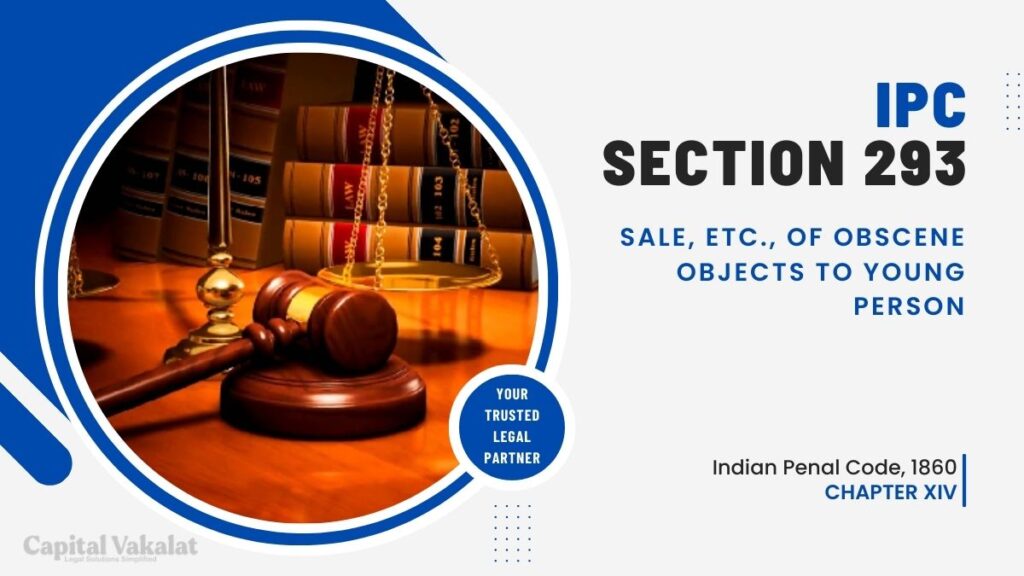Section 293 IPC serves as a crucial legal provision in curbing the sale, distribution, and exhibition of obscene objects to young persons. In a society grappling with evolving moral standards and digital advancements, understanding and implementing this section is imperative to safeguard the innocence of the youth.

Understanding Section 293 IPC
At its core, Section 293 IPC outlines the legal framework that regulates the sale of obscene objects to young persons. The term “obscene objects” encompasses a wide range of materials, from explicit literature to graphic visuals that may have a detrimental impact on the minds of the young.
Age Criteria and Identification
Defining the age range for “young persons” under this section is essential but not without challenges. The law must strike a balance between protecting the vulnerable and acknowledging the maturation process, making it imperative to scrutinize the age criteria meticulously.
Sale of Obscene Objects
The section explicitly delineates what constitutes the sale of obscene objects. It extends beyond mere transactions, encapsulating a broad spectrum of activities aimed at exposing the young to content deemed unsuitable for their age. Real-life examples serve to illuminate the nuances of this legal provision.
Legal Consequences
Violating Section 293 IPC carries significant penalties. Through the examination of past legal cases, one can grasp the severity of consequences imposed on individuals and entities found guilty of breaching this section. These case studies act as cautionary tales, underscoring the importance of compliance.
The Role of Authorities
Law enforcement agencies play a pivotal role in upholding Section 293 IPC. They bear the responsibility of implementing measures to prevent the sale of obscene objects to young persons. An exploration of their duties and challenges sheds light on the intricate dynamics of enforcement.
Impact on Society
Beyond the legal ramifications, the unregulated sale of obscene materials to the youth has profound societal consequences. This section sparks debates about the delicate balance between freedom of expression and the need to shield the young from potentially harmful content.
Challenges in Implementation
Despite its significance, enforcing Section 293 IPC faces numerous challenges. From jurisdictional issues to the covert nature of some transactions, implementing the law demands a strategic approach. Proposals for overcoming these hurdles are crucial for effective enforcement.
Public Awareness
A robust legal framework is only as effective as the public’s awareness of it. Initiatives aimed at educating the public about Section 293 IPC are pivotal in fostering compliance and creating a community that actively discourages the sale of obscene objects to young persons.
Conclusion
In conclusion, Section 293 IPC stands as a bulwark against the corrosion of moral values and the exploitation of the young through the sale of obscene objects. Stricter implementation, coupled with comprehensive public awareness campaigns, is essential for the efficacy of this legal provision.
Frequently Asked Questions
How can parents ensure their children are not exposed to obscene materials?
Monitoring online activities, having open conversations, and using parental controls are effective measures.
Are there any exceptions to Section 293 IPC for artistic or educational purposes?
The law may have provisions for artistic or educational content, but it depends on the context and interpretation.
What steps can authorities take to improve the enforcement of this section?
Increased collaboration, technological advancements, and stringent penalties can enhance enforcement.
Does Section 293 IPC apply to digital content and online platforms?
Yes, the section applies to a broad spectrum of mediums, including digital content and online platforms.